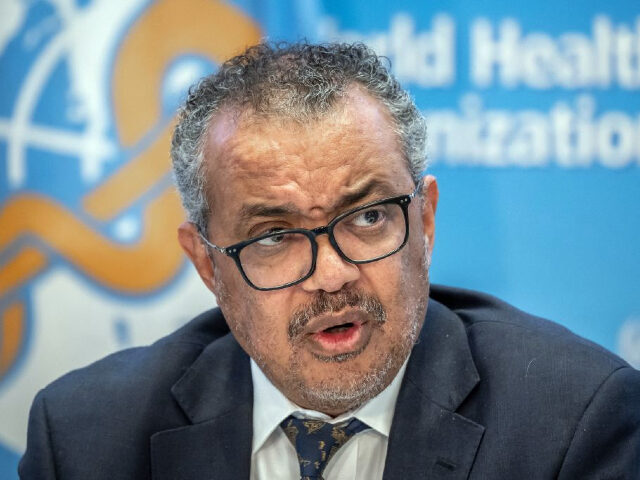The World Health Organization (W.H.O.) called on countries to sign its pandemic treaty in order to prepare for “Disease X” at Wednesday’s World Economic Forum in Davos, Switzerland.
W.H.O. Director-General Tedros Ghebreyesus shared his hopes that the international community would reach a pandemic agreement by May to fight against this “common enemy.”
While scientists have identified several possible “high-risk” animal viruses such as bird flu, hantavirus, and monkeypox, “Disease X” is used as a placeholder to refer to a potential pathogen that could be 20 times deadlier than the coronavirus.
A November 2022 W.H.O. press release revealed that Disease X “could cause a serious international epidemic.”
In meetings held that fall, W.H.O. researchers began studying different pathogens to determine which could be the elusive Disease X in a process that includes “both scientific and public health criteria, as well as criteria related to socioeconomic impact, access, and equity.”
During the WEF summit, chaired by the organization’s founder Klaus Schwab, Ghebreyesus said that coronavirus was the first Disease X, but people should be prepared for another.
“There are things that are unknown that may happen, and anything happening is a matter of when, not if, so we need to have a placeholder for that, for the diseases we don’t know,” the health official said.
“We lost many people [during the coronavirus pandemic] because we couldn’t manage them,” Ghebreyesus said. “They could have been saved, but there was no space. There was not enough oxygen. So how can you have a system that can expand when the need comes?”
He continued on to say that a collective action cemented via an international treaty would help the world better react to another outbreak.
“The pandemic agreement can bring all the experience, all the challenges that we have faced and all the solutions into one,” Ghebreyesus argued. “That agreement can help us to prepare for the future in a better way.”
“This is a common global interest, and very narrow national interests should not come into the way.”
According to the W.H.O. director, the panels of experts have been working on collaborative methods before the May deadline for the treaty to be signed.
Some of the preparedness methods could include “an early-warning system, organizing supply chains and advancing research and development to test drugs,” reported the New York Post.
Ghebreyesus continued on to assert that “It’s better to anticipate something that may happen because it has happened in our history many times, and prepare for it.”
“We should not face things unprepared; we can prepare for some unknown things, as well,” he said.”
Fox News reported that the Biden administration was negotiating the global pandemic treaty last year, despite Republicans criticizing the potential agreement for ceding sovereignty to the WHO.
“The World Health Organization pandemic treaty is very vague, it affects our sovereignty, and it could be exploited to tell Americans what kind of health care they need in the event of a global pandemic,” Rep. Tim Burchett (R-TN), said in May.

COMMENTS
Please let us know if you're having issues with commenting.